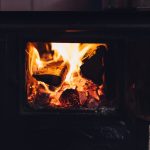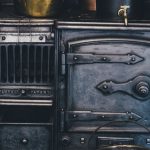Our Boat Stove Trade-In Deals
Upgrade Your Boat Stove: Get Up to £250 Credit on Your New Diesel or Solid Fuel Stove or Cooker! Are[…]
Read moreMarine Solid fuel appliances are a popular choice for boat heating, especially for narrowboats and barges. The traditional choice for heating, solid fuel has a marine heritage stretching back centuries. In the modern world, there are some considerations to be made before choosing your perfect solid fuel appliance
For quotes and bookings contact us on 07846 274 926 or email marineheatingsolutions@gmail.com


Solid fuel appliances take two differing categories of fuel: wood and coal/smokeless fuel. Some are designed to just burn wood (woodburners), other are made to burn coal/smokeless fuel as well as wood (multifuel).
Woodburners are a good solution for taking the chill out of autumn and spring evenings. The energy within the wood is unlocked quicker, which gives higher heat at a fast rate. This also means that you will need to keep adding more wood to the stove as it is burned through. Woodburners can’t burn smokeless fuel/coal, as they have no grate. A grate is essential to allow enough air into the fire when burning coal/smokeless fuel. Without enough air, there is a high risk of Carbon monoxide being produced, which is a risk to safety. When burning wood, we recommend using dry, seasoned hardwood as this minimises your environmental impact and prevents sticky tar-like substances from blocking up your chimney or leaking onto your boat’s roof and sides.
Multifuel appliances can burn wood, coal and smokeless fuel. We do not recommend burning house coal, it is highly polluting and unnecessary on high efficiency modern stoves. Smokeless fuels are widely available. We recommend experimenting with some of the different types available to you locally to find what suits your usage patterns best. Your smokeless fuel supplier or local coal boat should be able to advise you. Smokeless fuel is slower burning than wood. This means it will take longer to produce good heat, but once the fire is going it will last for several hours. Residential boaters generally find that multifuel stoves can keep them warm throughout winter.
Keeping a fire going in a marine solid fuel appliance is something of a lost art, many people have not grown up with solid fuel appliances as previous generations did. It is, however, relatively easy to master. If you are totally new to solid fuel appliances, our engineers can show you some tips and tricks for getting a good fire set and going. There are many different ways to manage the fire in a marine solid fuel appliance, it is worth getting advice and trying a few different methods to find what works for you and your solid fuel appliance. It is always easier to keep a fire going in a new or well serviced appliance.
You will need to keep your chimney clear throughout the season. Luckily, with boat solid fuel appliances, the chimney is usually accessible enough to carry this out yourself. It is worth investing in a chimney brush from your local chandlery, and regularly sweeping as part of your usual boat chores. Keep the door on your appliance closed when sweeping to minimise dust escaping onto your living area.
Your solid fuel appliances also require ventilation to bring in fresh air for combustion. Regularly check that these vents are clear and not blocked. Never block these yourself to minimise drafts, blocked vents lead to Carbon Monoxide poisoning.
When correctly ventilated, marine solid fuel stoves help reduce condensation and humidity on boats. They draw damp, cold air into the stove and force the water vapour out through the chimney, along with any combustion gases. This is excellent for UK winters, where pervasive damp is as much of an issue as the cold.
Care should be taken when installing any solid fuel appliance. We recommend contacting our experienced team who will provide you with a safe yet practical installation. There should be enough clearance between hot parts of the solid fuel appliance and combustible materials. The hearth should also be of the correct dimensions. If you already have a solid fuel appliance installed, check carefully for any signs of heat damage in the surrounding area. If the appliance has not been installed correctly, you may see signs of scorching around the appliances which suggests a fire risk.
Fireguards are a good idea if you will regularly have young children and pets aboard. Most of your solid fuel appliance will become very hot during use, as this is how it transfers heat into your living area.
Upgrade Your Boat Stove: Get Up to £250 Credit on Your New Diesel or Solid Fuel Stove or Cooker! Are[…]
Read moreMarine Heating Solutions: Your Trusted Partner for Diesel and Solid Fuel Boat Stove Servicing Are you a boat owner looking[…]
Read moreWhen it comes to heating options for boats, back boilers are a popular choice. These ingenious systems combine the functions[…]
Read moreWhen it comes to boat stoves, safety and efficiency are of paramount importance. One essential component that plays a critical[…]
Read moreIn this post, we aim to give some general guidance on how to install a boat stove. Many boats on[…]
Read moreNew heating and plumbing services for your boat now available. Since Marine Heating Solution was founded some years ago, it[…]
Read moreA post about solid fuel and diesel stove safety on boats. Boat stove safety is an important issue for people[…]
Read moreNo more cold boats with Marine Heating Solutions We are Marine Heating Solutions Ltd, a marine business specialising in boat[…]
Read more